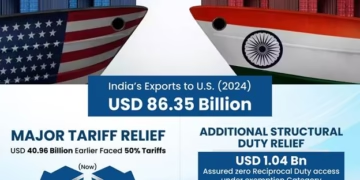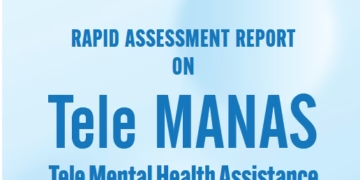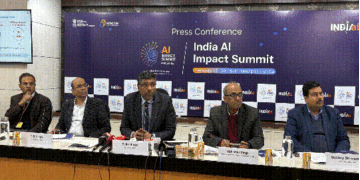February 2, 2021
The Government of India in its explanatory memorandum signalled its acceptance of the 15th Finance Commission’s landmark recommendations in respect of municipalities. The Finance Minister tabled in Parliament the NK Singh-led 15th Finance Commission’s final report titled, “Finance Commission in COVID Times: Report for 2021-26” earlier today alongwith Union Budget 2021-22. The recommendations of the 15th Finance Commission include fund allocation of Rs 1.5 lakh crores comprising 100% outcome funding of Rs 38,000 crores for million-plus urban agglomerations, tied to performance indicators on air quality (Rs 12,000 crores) and water and sanitation (Rs 26,000 crores). Remaining cities have received an allocation of Rs 83,000 crores in aggregate, with 60% of the funds tied to performance on water and sanitation and balance being untied. In addition, the Commission also earmarked Rs 26,000 crores for urban health infrastructure, Rs 8,000 crores for incubating new cities and Rs 450 crores for shared municipal service centres.
Some of the reform highlights of the report include mandatory entry condition of publishing audited and unaudited annual accounts online, notifying floor rates for property tax, and showing annual increase in property tax collections. Every municipality in India would need to comply with these conditions in a phased manner to avail any 15th FC grants. The FC has also laid down a deadline of March 2024 for states to constitute State Finance Commissions and submit action taken reports on their recommendations in state legislatures.
Commenting on the report, Srikanth Viswanathan, CEO, Janaagraha said “Even as grant allocations are substantial, the reform measures of the 15th FC on audited annual accounts, property tax and State Finance Commissions are more far-reaching and significant. Taken together with outlays in the Union Budget and reforms under Atma Nirbhar Bharat and other flagship schemes, this marks the biggest push for improved financial governance in our cities”.
The total fund allocation of Rs. 1.55 Lakh crores for India’s approximately 4,500 urban local bodies (ULBs) is spread over the next 5 years, FY 2021-22 to FY 2025-26. This grant allocation to India’s municipalities is 35% of the total divisible tax pool for Local Bodies (of Rs. 4.36 Lakh crores), and is a substantive 78% increase over the Rs. 87,000 crores allocation made by the previous (14th) FC allocation for ULBs for the 5 years, FY 2015-16 to FY 2019-20.
In its interim report for 2020-21 the FC had allocated grants amounting to Rs. 29,250 crores for India’s municipalities (ULBs) which was 32.5% of the total divisible tax pool for Local Bodies (including both Rural & Urban). Last year the FC also increased the allocation to the Local Bodies, from the total divisible tax pool, from 3.54% in 2019-20 to 4.31% in 2020-21.
Mr. Mohak Mathur, Head-Municipal Finance Reforms, Janaagraha, opined, “With India urbanising so rapidly, and urban population expecting to double to over 800 million by 2050, massive investment of Rs. 39.2 lakh crores is required to cater to the urgent demands for developing and upgrading urban infrastructure services such as – roads, sewerage, street lights, waste management & treatment facilities, water bodies, among others. Therefore, greater funds in the hands of the otherwise financially weak ULBs by the 15th FC become very important, especially for India’s smaller cities, where a substantial portion of the ULB’s receipts (in some cases as high as 90%) still come from grants.”
Janaagraha also believes that the two game-changer entry conditions set by the Commission for all of India’s 4,500 ULBs to access the FC grants – i.e. publication of audited & unaudited annual accounts, available online; and notification of floor rates for property tax and consistent improvement in collections in line with state GSDP – will go a long way in laying a strong foundation for financial accountability and own revenue enhancement of municipalities in India. A basic version of these conditions have also featured in the Centre’s Atmanirbhar Bharat Abhiyaan’s grant conditions for urban local bodies.
“Taken together, these two basic yet crucial reform conditions will also likely drive more informed policy making and improved relationship (for municipalities) with its key external stakeholders including multilateral financial institutions, credit rating agencies and large infrastructure investors, especially for future fund raising including municipal bond issuances”, Mr. Mathur added.
Also, the Bengaluru-based think-tank congratulated the FC on continuing its nuanced approach of distinguishing between million-plus urban agglomerations (UAs), and other cities, and bringing forth a special focus and recognition of metropolitan governance for the first time in India, which they believe will play a key role in solving complex challenges of bad air quality, water and sanitation, with implicit emphasis on inter agency coordination.
While Janaagraha believes the 15th Finance Commission’s recommendations as per the final report are fundamentally transformational for the financial governance of India’s municipalities, it is also hopeful that the recommendations are adopted and implemented by the relevant stakeholders, especially the States, in the fullest extent possible.
“State Governments would now need to complement the outlays in Union Budget and provisions of the 15th Finance Commission and undertake their own flagship initiatives to improve financial governance of municipalities. The emphasis on State Finance Commissions is therefore welcome” Mr Viswanathan added.














































